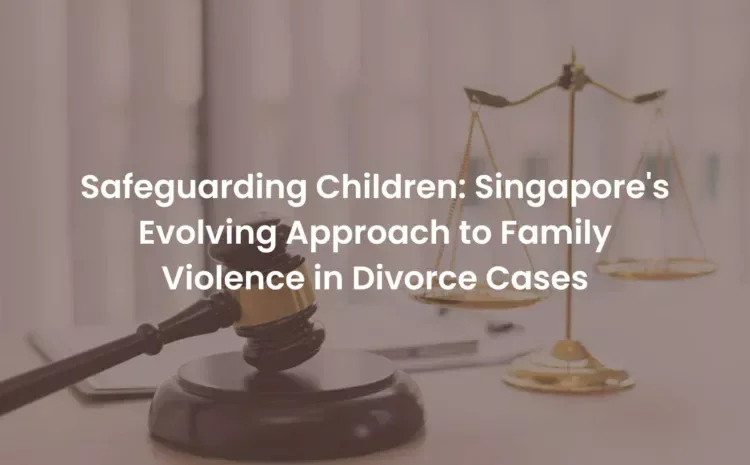Safeguarding Children: Singapore’s Evolving Approach to Family Violence in Divorce Cases
Introduction
Divorce is a challenging process, especially when children are involved. Recent amendments to Singapore’s Women’s Charter underscore the government’s commitment to prioritizing the well-being of children in divorce proceedings, particularly in cases involving allegations of family violence. This blog post delves into the key changes in legislation, the measures in place to protect children, and the evolving approach towards ensuring the best interests of the child.
Key Legislative Changes
In January, Parliament passed significant amendments to the Women’s Charter, introducing measures aimed at strengthening the protection of children during divorce proceedings. These amendments include mandatory counseling, compensation for denied access, and, in extreme cases, the possibility of a jail term and fine for parents obstructing child access to the former spouse.
The amendments also emphasize educating couples on parenting, mediation, therapeutic programs, and family support initiatives, empowering the court to enforce child access orders more effectively.
Family Violence Allegations: A Serious Consideration
One notable aspect of the recent changes is the increased scrutiny of family violence allegations during divorce proceedings. The Ministry of Social and Family Development emphasizes the “paramount consideration” given to the child’s best interests when matters involve children. Allegations of family violence are viewed seriously, prompting the court to take necessary actions to protect the child.
Protective Measures: Counseling and Supervised Visitation
In cases where family violence is alleged, the court may implement counseling and supervised visitation orders to ensure the child’s safety. Angelina Hing, managing director at Integro Law Chambers, explains that in extreme cases involving abuse or trauma, the court may suspend all access to the abusive parent until the child is ready for such contact. These measures are aligned with the Family Justice Court’s focus on therapeutic justice, aiming to minimize acrimony and encourage co-parenting.
Non-Adversarial Approach: Therapeutic Justice
Singapore’s Family Justice Court is shifting towards a non-adversarial approach known as therapeutic justice. This approach seeks to solve problems collaboratively, helping parents manage conflicts and engage in co-parenting, in contrast to the traditional adversarial approach.
Addressing Challenges and Concerns
While the amendments provide a framework for protecting children, lawyers emphasize the need to address genuine concerns while preventing misuse of the system to prolong litigation unnecessarily. Access enforcement enables parents with valid concerns to seek court intervention, yet there remains a need for discernment to distinguish genuine obstacles from attempts to hinder access without just cause.
Conclusion
Singapore’s evolving approach to family violence allegations in divorce cases reflects a commitment to safeguarding the well-being of children. The recent legislative amendments, combined with the emphasis on therapeutic justice, counseling, and supervised visitation, aim to create a more supportive and child-centric environment during divorce proceedings. As these changes unfold, it is crucial to ensure that the child’s wishes, best interests, and well-being remain at the forefront of legal considerations.

